MIT Media Lab's BioLogic material opens and closes in response to humidity
Teams from MIT Media Lab and the Royal College of Art have used bacteria to design a "bio-skin" fabric that peels back in reaction to sweat and humidity (+ slideshow).
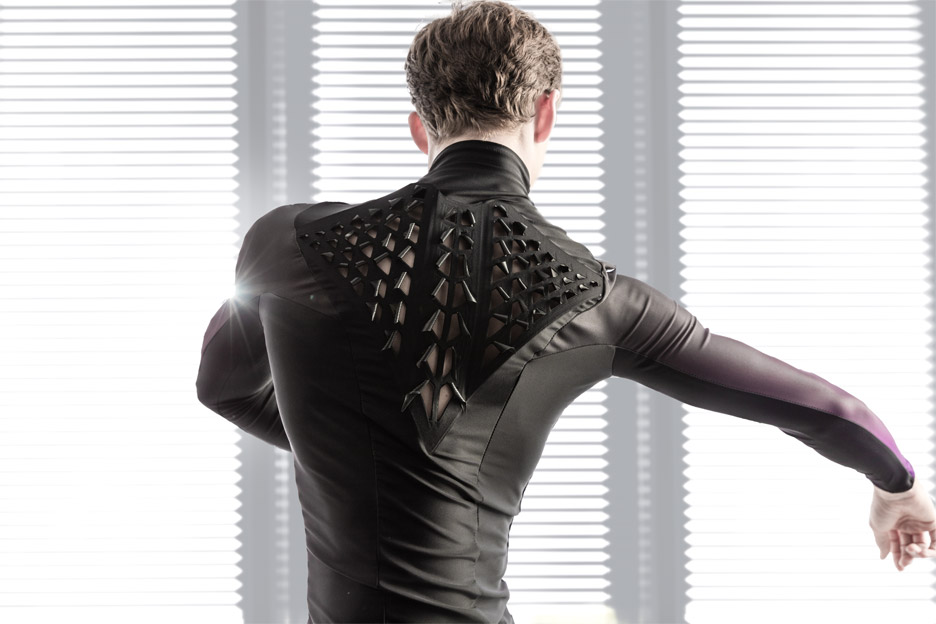
The BioLogic fabric relies on bacteria reportedly discovered 1,000 years ago by a Japanese samurai. The Bacillus Subtilis microorganism has since been used to ferment foods in Japan, including natto – a soybean-based dish.
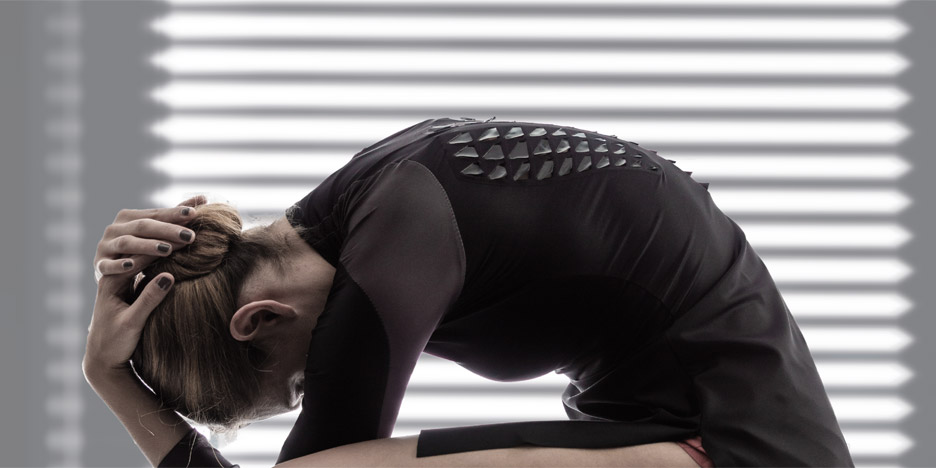
Teams from the MIT Media Lab's Tangible Media Group and Royal College of Art have used the bacteria's ability to expand and contract in reaction to moisture, and developed a method for incorporating it into material that can be used for garments.
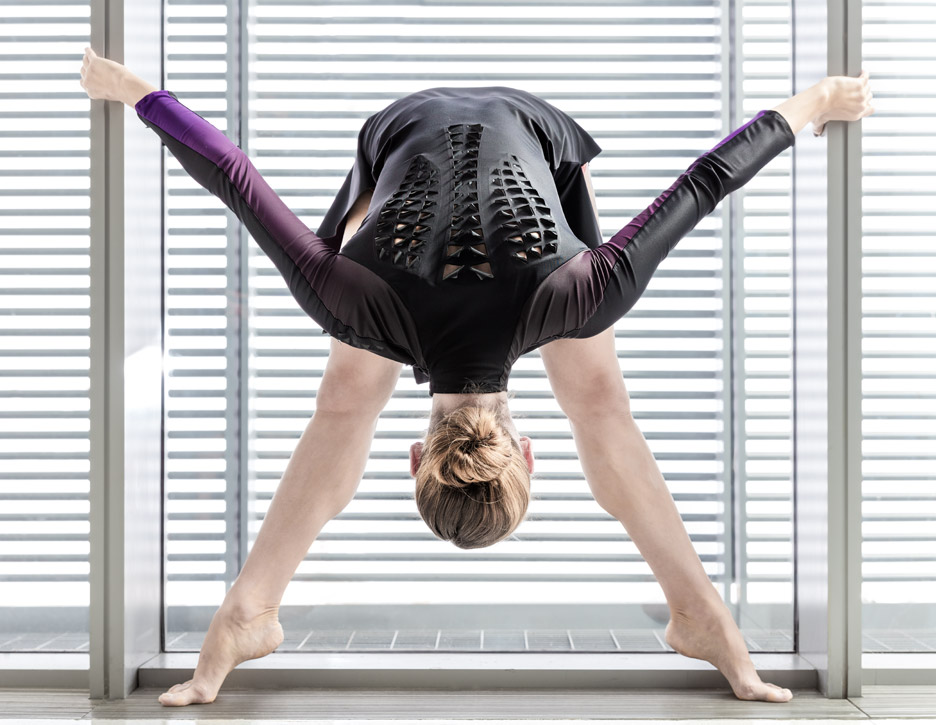
"We're starting to build up an automatic printing system in which fresh cells can be assembled on a thin fabric," said MIT Media Lab's Jifei Ou. "The different expansion and contraction level of the new materials creates a variety of bending behaviours in space and time."
A film released by the lab demonstrates how clothes constructed from the fabric could contain diamond-shaped openings covered in two flaps. These flaps peel back once the wearer starts to warm up, providing additional ventilation and helping them to cool down.
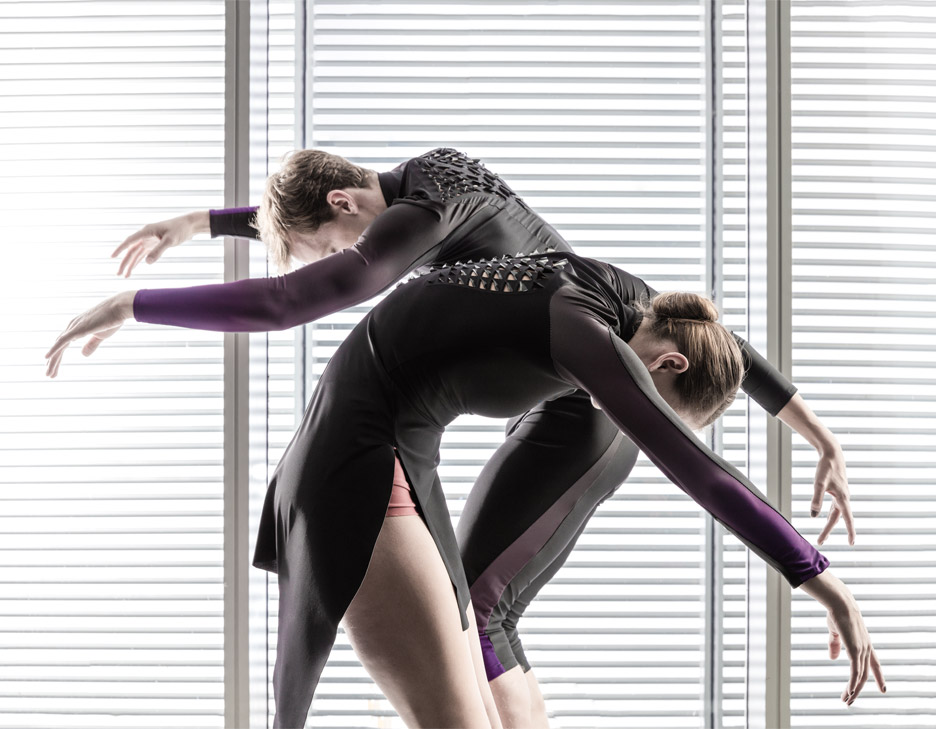
"In addition to a single bending structure different printing patterns and material combinations enable us to create more complex transformations," said interaction designer Helene Steiner.
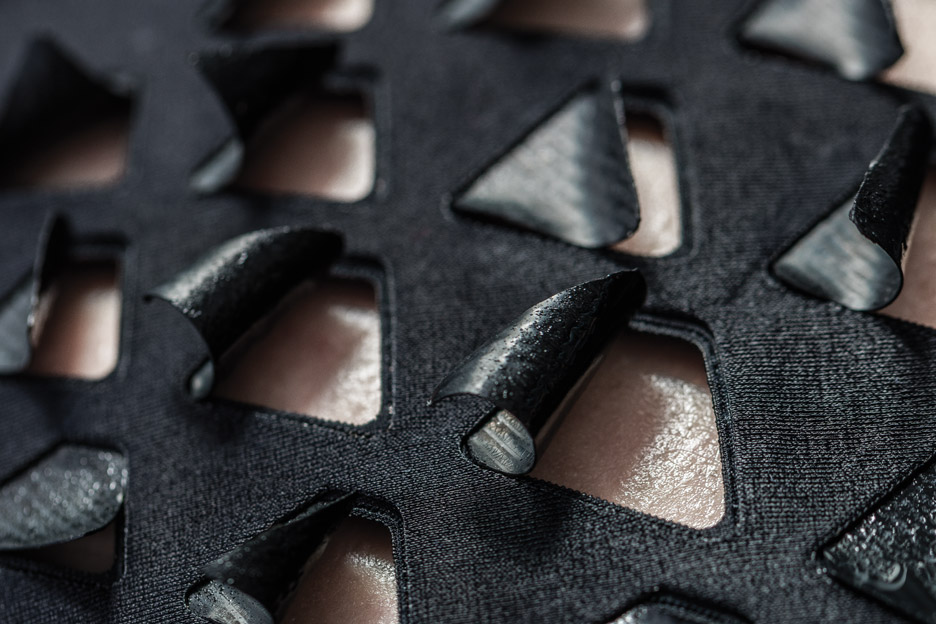
By embedding heating circuits, the material could be controlled by electric signals. Further uses for the cells include a steam-activated teabag label, bio-hybrid flowers that can open and close their petals, and colour-changing fabric.
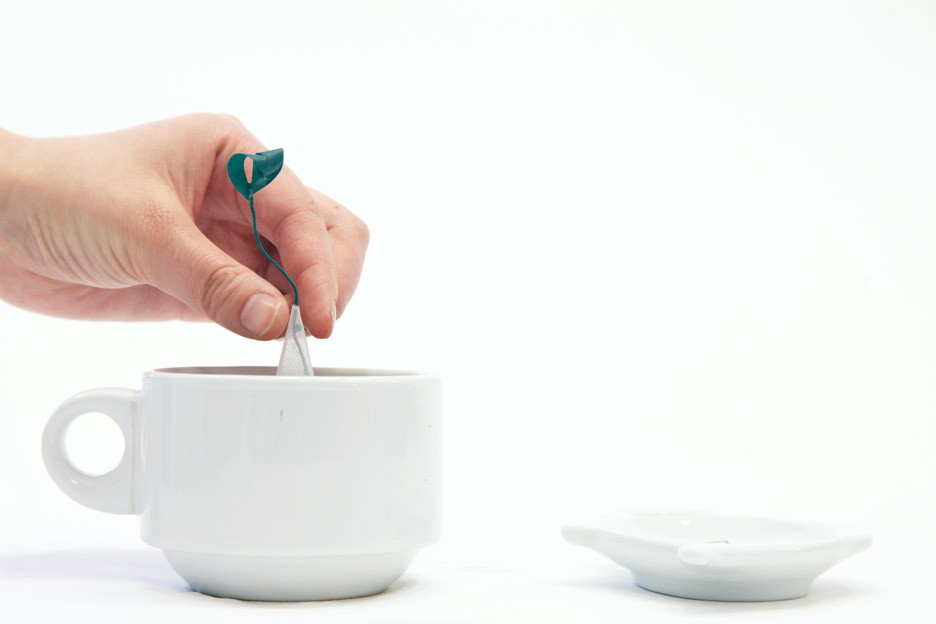
"Fashion is changing and this project is part of it," said fashion designer Oksana Anilionyte. "I believe it's time where we think the way we create fashion and the reason behind it."
"The Biologic project enables us to explore new innovative materials combined with traditional garment-making techniques."
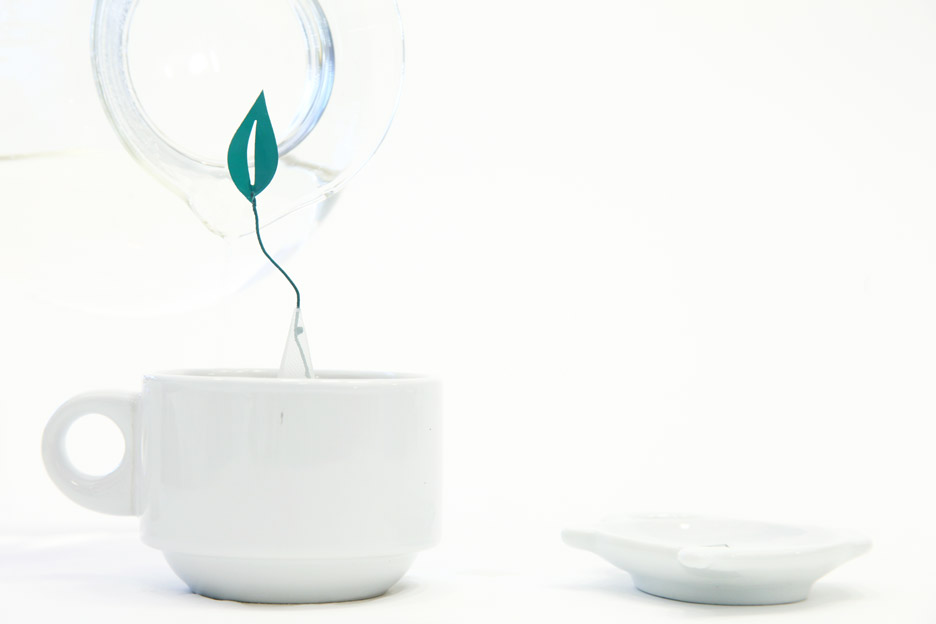
"The designs are inspired by the natto cells' response to different body parts, and that creates really fine flat movements," she added. "The experience of wearing these garments is very special because they come to life once you start wearing them."
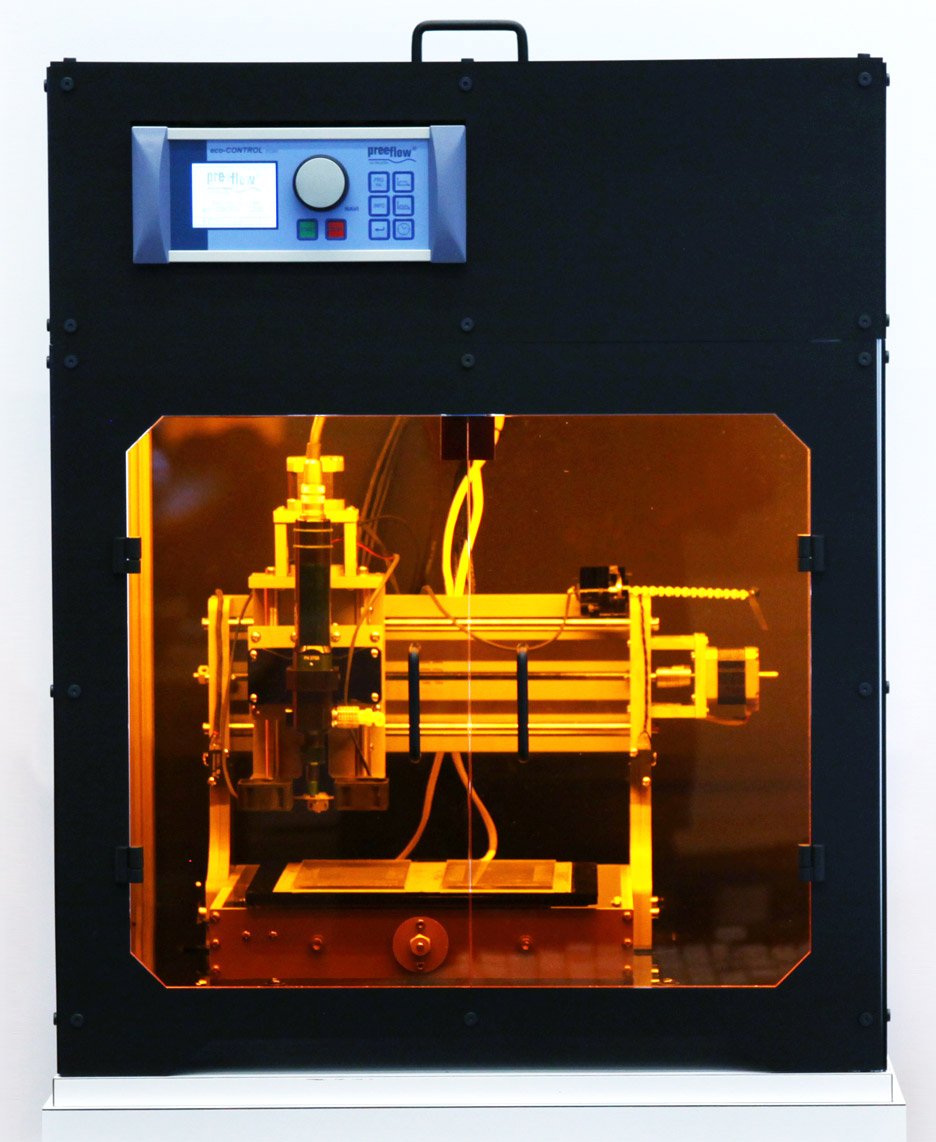
The team is reportedly working with sports brand New Balance on ways to incorporate the fabric into sportswear.
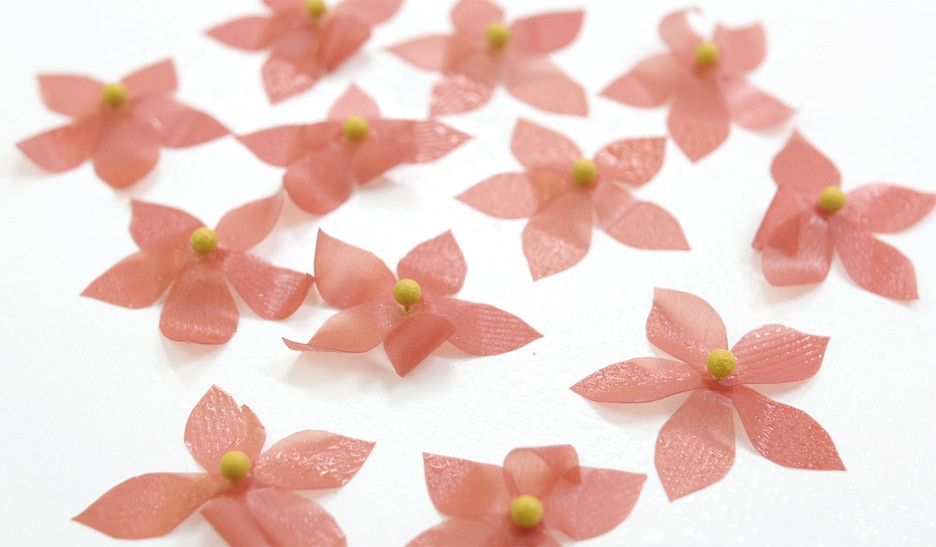
Other designers are working with bacteria on everything from lab-grown typography, to bio-luminescent lamps and wearable objects made of bacterially-grown material stretched over a framework.
Photography is by Rob Chron.